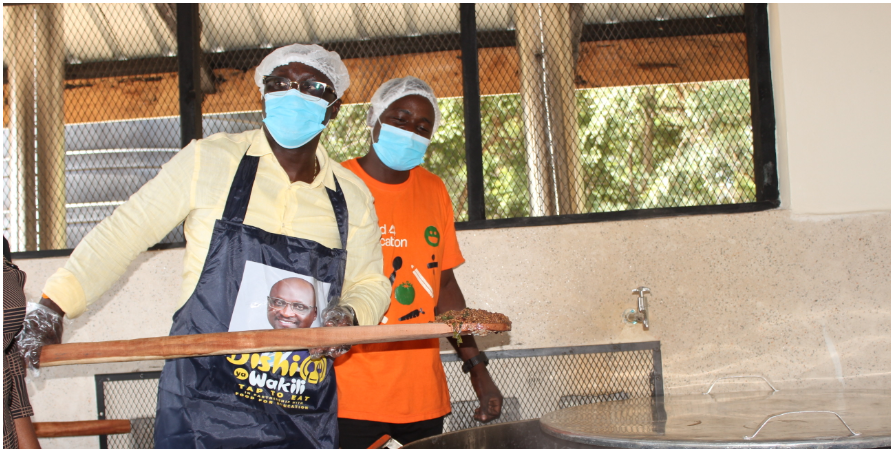

Over 25,000 primary school learners from Gatanga constituency are set to benefit from a free feeding programme aimed at boosting their academic performance.
The Dishi Ya Wakili Tap To Eat programme is set to be rolled out in all 87 primary schools and has been started in about 60 schools so far. Parents pay Sh20 daily for the meals through a paybill number and learners are provided with a wristband that is scanned to allow them to access the meals.
MP Edward Muriu said parents can load as much money as possible into the paybill number using their phone numbers as the account and that they then get a text message when the funds gets too low.
The MP emphasised that hunger is one of the main issues hampering good academic performance for many learners who struggle to focus on studying while on an empty stomach.
“We have teachers and we have done a lot to improve the infrastructure but we have been having a gap in the availability of food for many pupils,” he said.
In 2022, the MP said he sponsored a motion in the National Assembly to have the government support feeding programmes in primary schools but that it was not acted upon.
This prompted him to approach Food 4 Education, a local NGO focusing on providing meals for school going children.
The organisation then established 22 modern, centralised kitchens in the constituency through which the meals are prepared before being distributed to the rest of the schools and hired workers, including 52 riders and cooks.
“My issue was that we have for a long time provided meals for secondary school students who are significantly older while neglecting primary school pupils who need it the most,” he said, confirming that all 87 primary schools will be covered by the end of the year.
Speaking while launching the programme at Ngaatho Primary School, Muriu expressed confidence that the constituency’s academic performance will greatly improve as learners will be able to better focus on learning.
“We have agreed on the menu that will include rice with a protein such as ndengu or beans, and vegetables. We plan to work on this programme for about 10 years. We hope by then, the government will have made plans to feed learners to relieve parents of the burden.”
Elton Albert Nyangoka, the NGO’s programme assistant in Murang’a county, said the paybill number used by parents to pay for the meals is zero rated.
After starting a programme, Nyangoka said the NGO provides meals for free for two days to learners and teachers as a sample, before the learners start paying for it and that they are then provided with a fruit every Wednesday.
With a plate costing Sh50, the NGO pays Sh30 while the parent provides the remaining Sh20.
Nyangoka however expressed concerns that a large number of parents still struggle to pay for the meals due to financial constraints.
In many schools, especially in Ithanga/Kakuzi subcounty that is largely semi-arid, about 30 per cent of learners are unable to pay the Sh20 daily charge.
“As an organisation, we have a programme that identifies about 10 per cent of the vulnerable learners and provides them with the meals for free but that means that 20 per cent of them are left struggling,” he said, appealing to well-wishers to come in and help feed the disadvantaged learners.
The organisation currently feeds over 600,000 learners daily in 10 counties that includes Murang’a, Kiambu, Kisumu, Nakuru, Uasin Gishu, Kakamega, Mombasa, Homa Bay, Embu and Siaya and aims at expanding the coverage to a million children by 2027.
Its largest kitchen is in Industrial Area, Nairobi, and feeds over 60,000 children every day.
In Murang’a, the NGO helps provide porridge to over 42,000 ECDE learners daily at a cost of Sh16 per cup that is paid for by the county government.
The programme has helped create jobs for 170 riders, 109 cooks and 659 servers who work in the 55 kitchens established in Murang’a county, benefiting 658 ECDE centres.
“The most important support we require from the local leadership is provision of water and good roads to facilitate the preparation and ferrying of the food from the centralised kitchens to schools.”












